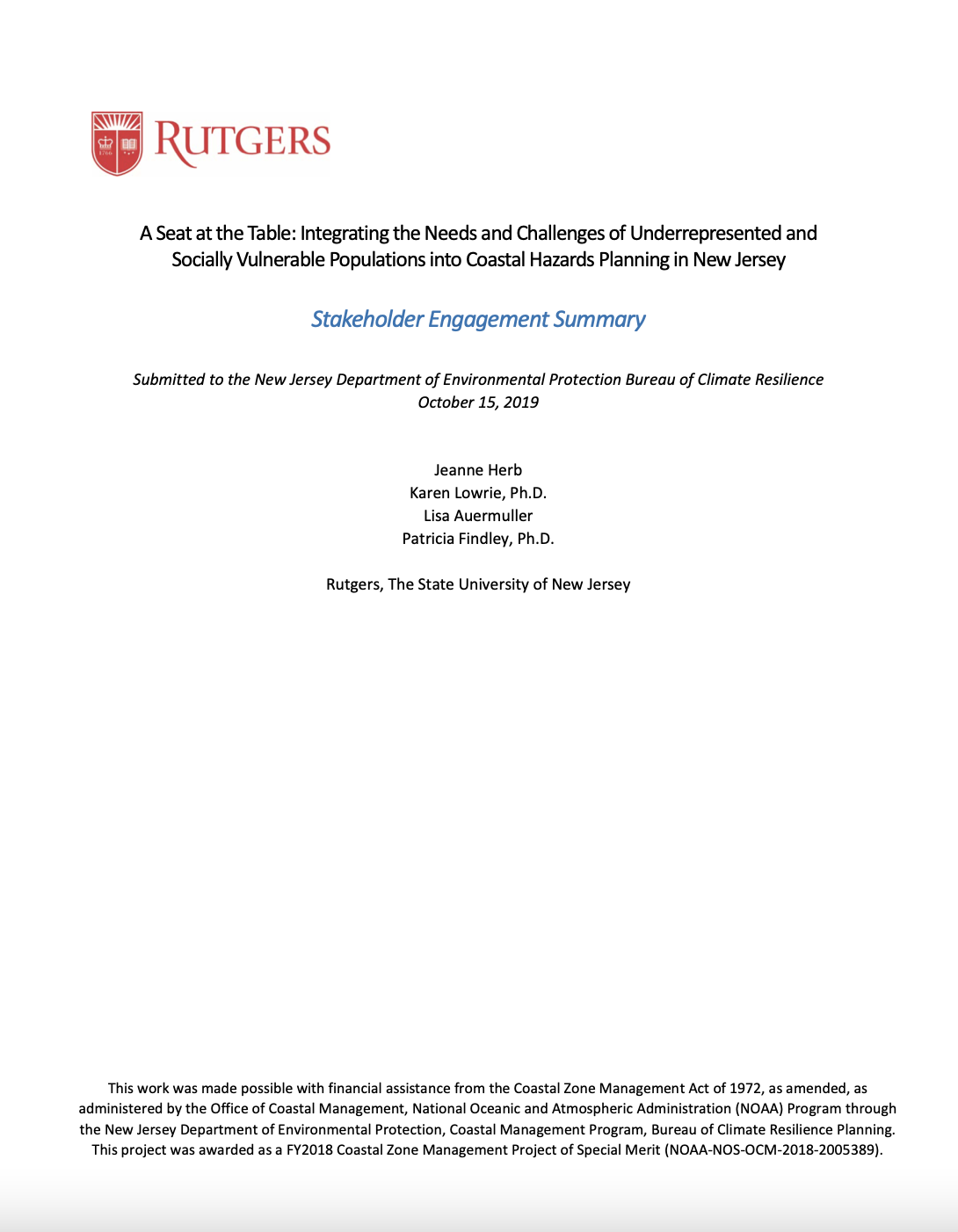While all people living in the United States are affected by climate change, some communities and some populations are more vulnerable to changing climate conditions than others. Extensive research here in the United States and across the world points to populations of concern including those that are low-income, some communities of color, immigrant populations, people with limited English proficiency, Indigenous people, older and younger adults, people with disabilities and compromised health and mental health conditions, and others.
Rutgers University is working in partnership with the New Jersey Department of Environmental Protection (NJDEP) Bureau of Climate Resilience Planning on the NOAA Project of Special Merit (PSM) project, A Seat at the Table: Integrating the Needs and Challenges of Underrepresented and Socially Vulnerable Populations into Coastal Hazards Planning in New Jersey. The project objectives are to:
- Update and enhance access to data that can be used by practitioners to identify socially vulnerable populations as part of community climate resilience planning;
- Develop guidance in the form of training curriculum and outreach materials to inform and support practitioners’ efforts to engage socially vulnerable populations as part of community climate resilience planning;
- Offer recommendations for changes in coastal management and other policies that will support engagement of socially vulnerable populations in coastal climate resilience planning.
One project task is to conduct interviews with a set of key informants who are knowledgeable about the needs and challenges of socially vulnerable populations in New Jersey to inform overall project outcomes and outputs; and to conduct focus groups with socially vulnerable populations and/or organizations that serve socially vulnerable populations. As part of this task, the Rutgers team conducted more than 20 key informants and four focus group, three of which were with residents in Camden, Newark and Perth Amboy and one of which was with voluntary organizations that are active after disasters. This report summarizes the outcomes of those stakeholder engagement efforts.
